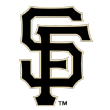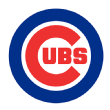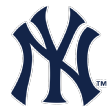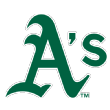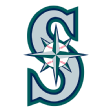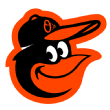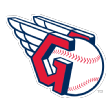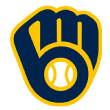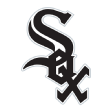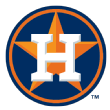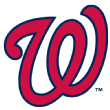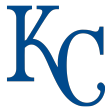The 2019 season reminds me of the great Mickey Mantle quote: “Somebody once asked me if I ever went up to the plate trying to hit a home run. I said, ‘Sure, every time.'”
That should be the slogan for this entire season, with the juiced balls flying out of parks in stunning numbers: Sure, every time. Every day it seems some record is set. Just this past weekend, Pete Alonso set the National League rookie record for home runs. Before the weekend, there had been just three games in MLB history during which teams combined for at least 12 home runs (one earlier this season). It happened twice in three days. On Monday, the Nationals became just the second team in 20 years to score at least 13 runs in three straight games. The stretch of consecutive days in which at least one player has had a multihomer game just hit 36, as Tom Murphy of the Mariners had his third two-homer game of 2019 — and he is the backup catcher.
And so on and so on.
With the barrage of home runs the story of the season, I thought it would be fun to look at each team and pick the most impressive individual home run achievement in franchise history. This could be anything: One game, one streak, one season or something accomplished over a career. For the most part, I shied away from the four-homer games — there have been 18 of those — since I didn’t want a list of four-homer games (although a couple of them did make the list).
With apologies to Bob Horner, Mark Whiten and Scooter Gennett, the best home run achievements for each team:
Franchise record: Barry Bonds, 73 (2001)
Best achievement: Bonds’ 73 home runs
It is, after all, the single-season record, and the fact that Bonds did it in what was then Pac Bell Park is even more astonishing, considering how difficult it is to hit home runs there, especially for left-handed batters. That, essentially, was the problem with Bonds: He was too good. He broke the game and baseball was left with no choice but to finally confront the PED issue in the sport. His 2004 season defies reality: .362 batting average, .609 OBP, .812 slugging percentage.
In his record-breaking season, Bonds twice hit three home runs in a game and eight times hit two. His longest stretch without a home run was 13 games, from June 24 to July 8. He hit 17 home runs in May and finished by hitting .403 with 16 home runs in September/October. He actually only started 147 games that year (appearing in six others), so he might have cracked 75 if he had played a few more games. Ridiculous.
Franchise record: Mark McGwire, 70 (1998)
Best achievement: Fernando Tatis’ two grand slams in one inning (1999)
With apologies to McGwire, his record lasted just three seasons before Bonds broke it. Tatis’ record is virtually unbreakable; even under extreme conditions, it feels impossible to imagine a player batting three times in one inning with the bases loaded and hitting a home run each time. And good luck seeing it even tied. Heck, no player has even batted twice with the bases loaded in the same inning this season; and only 12 others besides Tatis have hit two grand slams in one game.
My favorite aspect of Tatis’ record: Both slams came off Chan Ho Park. Dodgers manager Davey Johnson left Park in to allow 10 baserunners in the inning — six hits (including three home runs), two walks, a hit batter and an error. Tatis’ second grand slam finally knocked Park from the game, 46 pitches after the inning began.
Franchise record: Sammy Sosa, 66 (1998)
Best achievement: Sosa’s 20 home runs in one month (June 1998)
You know the fun fact about Sosa, right? He hit 60-plus home runs three times — and didn’t lead the league in any of those seasons. When he hit 66, McGwire hit 70. When he hit 63 the next season, McGwire hit 65. When Sosa hit 64 in 2001, Bonds hit 73. Sosa did manage to lead the league with 50 in 2000 and 49 in 2002, giving him an average of 58 home runs per season over a five-year span.
The Great Home Run Race of 1998 — the one we’re now supposed to hold in disdain — actually wasn’t a great race during the first two months. McGwire hit 11 home runs in April and 17 in May, but Sosa was at just 13 home runs at that point, 15 behind McGwire. Then came one of the most incredible months in major league history. Sosa homered twice on June 1, then in five straight games from June 3 to June 8, cranked three more on June 15, hit two in back-to-back games on June 19 and 20, then hit No. 20 on the final day of the month. Sosa hit just .298 for the month in 27 games (he was hitting .343 entering June), but 20 of his 34 hits were home runs. The race was on.
Franchise record: Roger Maris, 61 (1961)
Best achievement: Don Mattingly’s two home run records in 1987
There’s obviously no shortage of options here for the Yankees:
— Babe Ruth hitting more home runs than any single team in 1920 (54);
— Ruth being the only player with two three-homer games in the World Series;
— Ruth hitting 60 in 1927;
— Lou Gehrig’s four-homer game in 1932;
— Ruth leading the league a record 10 times (plus two more with the Red Sox);
— Mickey Mantle’s World Series record of 18 home runs (good luck breaking that one);
— Reggie Jackson’s three home runs on three swings in Game 6 of the 1977 World Series;
— Mattingly tying the record with home runs in eight consecutive games;
— Mattingly also setting the record (since tied) with six grand slams in one season;
— Aaron Judge setting the rookie record with 52 home runs (2017).
I’ll go with Judge. Wait, Mattingly. Tough one here. The only other rookie in the vicinity of Judge’s 52 is McGwire with 49 in 1987, although Pete Alonso might wipe Judge from the record books next month. So let’s go with Mattingly for setting two significant records in 1987.
Mattingly’s dual records are somewhat more remarkable since he wasn’t a pure slugger (he hit 30 home runs that year). His eight-game streak sandwiched the All-Star break, five before and three after, and he twice hit two in a game, giving him 10 over the eight-game span. Two of his six grand slams also came in this stretch. Cleveland’s Travis Hafner would match Mattingly’s six grand slams in 2006, but only four players have hit even five, so six might stand for a long time.
Franchise record: Giancarlo Stanton, 59 (2017)
Best achievement: Stanton’s 59 home runs
Stanton’s monster season stands out not only for him — his second-best total is 38 — but also in Marlins history, as Gary Sheffield owns the franchise’s only other 40-homer season (42 in 1996). Stanton actually hit better at Marlins Park that year, mashing 31 home runs in 272 at-bats at home, as compared to 28 in 325 at-bats on the road. After mashing 18 home runs in August, Stanton entered September with an excellent chance of reaching Maris’ 61 — what many consider the “clean” record — but slowed down the final month, hitting .245 with eight home runs. He entered the final three games sitting on 59 but went homerless.
Franchise record: Jimmie Foxx, 58 (1932)
Best achievement: Mark McGwire’s 538-foot home run off Randy Johnson (1997)
Was it really 538 feet? I don’t know, and I don’t really care, because it was an absolute rocket blast into outer space (well, it would have been if it hadn’t happened in the Kingdome). Plus, it’s worth it just for the Dave Niehaus call:
Franchise record: Hank Greenberg, 58 (1938)
Best achievement: Cecil Fielder’s 51 home runs in 1990
Greenberg had a chance at breaking Ruth’s then-record of 60 home runs, sitting on 56 with nine games to play. He would hit two in the second game of a doubleheader with five games left, but the pressure had been building and Greenberg was physically and mentally exhausted. He went 3-for-3 in the final game and banged a double off the fence, but the game was called after seven innings due to darkness.
I’m going with Fielder’s season in 1990, however, factoring in the state of the game then, as compared to the high-scoring 1930s. First, Fielder became just the second player since 1965 to hit 50 home runs (George Foster hit 52 in 1977). Between the rabbit-ball season of 1987 and the dawn of the steroids era in 1993, we had five seasons of a lull in offense. Only eight times from 1988 to 1992 did players reach even 40 home runs:
Fielder, 1990: 51
Kevin Mitchell, 1989: 47
Fielder, 1991: 44
Jose Canseco, 1991: 44
Juan Gonzalez, 1992: 43
Canseco, 1988: 42
Mark McGwire, 1992: 42
Ryne Sandberg, 1990: 40
Fielder’s season looks even more impressive in this context. Within a few years, 50 home runs lost its shock value, but it was riveting to watch in 1990.
Franchise record: Ryan Howard, 58 (2006)
Best achievement: Mike Schmidt leading the league eight times
Howard’s season was certainly one for the ages, as he hit .313/.425/.659 with 58 bombs and 149 RBIs to win MVP honors. But Schmidt managed big numbers year after year as the premier National League slugger from the mid-1970s through the mid-1980s. Schmidt first led the league in 1974, when he hit 36, and last led in 1986, when he hit 37. Only Babe Ruth had more league-leading seasons, with 12.
Schmidt was one of the early prototypes of the “three true outcomes” slugger: Along with all the home runs, he drew 100-plus walks seven times and led in strikeouts four times. Schmidt was already a great player when he made an adjustment during batting practice at, of all places, the 1979 All-Star Game. He decided to move off the plate and drive the ball more to center field, instead of pulling everything. From 1980 to 1986, when he was 30 to 36 years old, he hit .281 and led the NL six out of seven seasons in OPS+.
“I was pitched inside and consistently missed that ball or hit home runs foul,” he once told sports columnist Thomas Boswell. “I hated just being ‘dangerous.’ I hated being the guy who could be an easy out if pitched properly. It’s not fun to have to battle that anxiety constantly, every at-bat.”
Franchise record: Luis Gonzalez, 57 (2001)
Best achievement: Gonzalez’s 57 home runs
Everyone remembers Curt Schilling and Randy Johnson and Gonzalez’s World Series-winning blooper off Mariano Rivera that year, but how many remember that Gonzalez hit .325/.428/.688 with 57 home runs, 142 RBIs and 419 total bases? Of course, he didn’t lead the league in any of those categories, and it goes down as one of the most surprising home run seasons ever, as Gonzalez never hit more than 31 in any other season.
As columnist Joe Posnanski recently wrote about this time in baseball history, “Wow, it really was the Wild West back then, wasn’t it?”
Indeed.
Posnanski pointed out that maybe 30 players will get to 100 RBIs this season. In 1999, 59 players had 100 RBIs. In 2000, there were 53.
In 2001, the top sluggers went nuts. Look at the total bases leaders that season:
Sammy Sosa, 425
Luis Gonzalez, 419
Barry Bonds, 411
Todd Helton, 402
There were a bunch of 400 total-base seasons in the 1920s and 1930s. But from 1938 through 1996, it happened just three times (Stan Musial, Hank Aaron and Jim Rice). Then Larry Walker did it in 1997, Sosa in 1998 and Helton in 2000. Then four players did it one season.
Nobody has done it since.
Franchise record: Alex Rodriguez, 57 (2002)
Best achievement: Josh Hamilton hitting four home runs and a double in one game (May 8, 2012)
Hamilton went 5-for-5 in a 10-3 victory over the Orioles, in the midst of a six-game span when he hit nine home runs. Hamilton was the 2010 American League MVP during a season that included a two-month stretch in June and July when he hit .437; but his first two months of 2012 might have been even better, as he hit .368/.420/.764 with 21 home runs.
Just like that, however, his run of greatness was over. He tailed off the final four months, signed with the Angels, kept chasing pitches out the strike zone, struggled, got hurt and last played in 2015, a comet sizzling out.
Franchise record: Ken Griffey Jr., 56 (1997, 1998)
Best achievement: Griffey with back-to-back 56-homer seasons
Flip a coin here. I could have gone with Griffey tying Dale Long and Don Mattingly when he homered in eight consecutive games in 1993 (he doubled off the wall in the ninth game), but I’ll go with his magical 1997 and 1998 seasons. Consider this: There have been 45 50-homer seasons, by 29 different players. Only nine of the 29 had more than one 50-homer season. Only five players have done it in consecutive seasons — and three of those of five come under the PED cloud of enhanced power hitting:
Babe Ruth, 1920-21 and 1927-28
Mark McGwire, 1996-99
Griffey, 1997-98
Sammy Sosa, 1998-01
Alex Rodriguez, 2001-02
Griffey just missed making it four in a row: He hit 49 in 1996 (when he played just 140 games) and 48 in 1999. Do you want to see Junior hitting two off David Cone on Opening Day, 1997? Of course you do:
Franchise record: Ralph Kiner, 54 (1949)
Best achievement: Kiner leading the league seven straight seasons
With apologies to Dale Long, the first player to homer eight games in a row, even Babe Ruth didn’t lead his league in home runs seven consecutive seasons. Kiner led the National League from 1946 to 1952, his first seven seasons, although he was the outright leader just four times (Johnny Mize tied him in 1947 and 1948, and Hank Sauer did the same in 1952). Kiner was a controversial Hall of Fame selection in 1976. He played just 10 seasons, as he retired at 32 due to back problems, and was a poor fielder with a weak throwing arm. It was a short career, but he did hit 369 home runs as one of the game’s premier sluggers.
As for Long, he is one of the more obscure holders of a major record. His record came in May 1956, when he was a 30-year-old journeyman first baseman, playing just his second full season in the majors, and the hot start (he was hitting .411 at the end of his homer streak) propelled him an All-Star selection. He finished with 27 home runs that year and 132 in his career, but his record has yet to be broken.
Franchise record: David Ortiz, 54 (2006)
Best achievement: Ortiz’s two walk-off home runs in the same postseason (2004)
There have been 51 walk-off home runs in postseason history, but only Bernie Williams and Ortiz have two — and Ortiz’s both came in the curse-ending season of 2004. His first one was the clinching blow in the AL Division Series against the Angels. Then he beat the Yankees in the 12th inning of Game 4 of the championship series, keeping that series alive for the miracle comeback:
Of course, Ortiz’s heroics in the postseason didn’t end there, as he also had the walk-off hit in the 14th inning of Game 5 of the 2004 ALCS. He is the only player with three walk-off hits in the postseason. He also is the career leader in postseason win probability added (granted, modern players have more games), as he hit .289/.404/.543 in his postseason career.
Franchise record: Jose Bautista, 54 (2010)
Best achievement: Joe Carter’s World Series walk-off (1993)
With apologies to Bautista and Carlos Delgado — for his four-homer game — only one man has hit a World Series walk-off home run when his team trailed in the game at the time:
Franchise record: Chris Davis, 53 (2013)
Best achievement: Frank Robinson’s 49 home runs in 1966
Robinson ranks just third on the single-season leaderboard for the Orioles, behind Davis and Brady Anderson’s all-time fluke season of 50 in 1996, but I give the nod to Robinson for three reasons:
1. His 49 home runs helped him win the Triple Crown.
2. The Orioles, who had acquired Robinson from the Reds in the offseason for Milt Pappas, won the World Series.
3. Robinson’s 49 homers towered over the rest of the league that year. Harmon Killebrew was second with 39, and only six players hit 30.
To be fair, Davis led by nine home runs over Miguel Cabrera in 2013, so he also towered over everyone else. His 31 home runs by the end of June had him on pace to crack 60, before he slowed in the second half. It was a monster season, but Robinson’s was a little bit more monster.
Franchise record: George Foster, 52 (1977)
Best achievement: Ted Kluszewski’s three straight seasons of 40-plus home runs with more home runs than strikeouts (1953 to 1955)
Foster’s campaign was the only 50-homer season between 1965 (Willie Mays) and 1990 (Cecil Fielder), and the amazing Aristides Aquino just homered 11 times in his first 17 career games. But big Klu did something only one player has done since, hitting 40 home runs with fewer strikeouts than home runs:
1953: 40 home runs, 34 strikeouts
1954: 49 home runs, 35 strikeouts
1955: 47 home runs, 40 strikeouts
Those numbers were impressive then and look ridiculous today as players trade home runs for strikeouts. Barry Bonds hit 45 home runs and struck out just 41 times in 2004. Bonds almost achieved the feat in 2002 (46 home runs, 47 strikeouts), as well, and Albert Pujols nearly did it in 2006 (49 home runs, 50 strikeouts). Kluszewski, however, did it three seasons in a row, and it has only happened 10 times altogether — Mel Ott, Lou Gehrig (twice), Joe DiMaggio and Johnny Mize (twice) are the others to reach the milestone.
Big Klu was known for his sleeveless jersey, showing off his muscled-up biceps. His power numbers took off in 1953 when the Reds moved in the fences in center field and left field at Crosley Field — although right field still remained 366 feet away for the left-handed slugger. Klu’s peak came to a sudden end when he hurt his back in a clubhouse scuffle in 1956. He hit just 34 home runs from 1957 to 1961. (He had another imprint on the Reds, serving as the team’s hitting coach for the Big Red Machine in the 1970s.)
Franchise record: Jim Thome, 52 (2002)
Best achievement: Albert Belle’s season of 50 home runs — and 50 doubles (1995)
I love Jim Thome. I love Travis Hafner matching Don Mattingly’s record of six grand slams in one season. But dear lord was Belle an absolute wrecking ball in 1995. He is the only player to hit 50 home runs and 50 doubles in the same season — and, remember, 1995 was a strike-shortened season, so Belle did it in a 144-game schedule. In August and September that year, Belle played 58 games and hit an insane .350/.439/.885 with 31 home runs, 23 doubles and 62 RBIs. Belle also is the co-holder of the record for most home runs over a seven-game span (10), tied with Frank Howard (1968 Senators) and Shawn Green (2002 Dodgers).
Honorable mention: Duane Kuiper had 3,379 at-bats in the major leagues — and hit one home run. In a unique application of “best achievement,” maybe Kuiper deserves top honors.
Franchise record: Andruw Jones, 51 (2005)
Best achievement: Hank Aaron breaking Babe Ruth’s all-time record (1974)
Easy call here:
I love this quote from Aaron: “I looked for the same pitch my whole career, a breaking ball. All of the time. I never worried about the fastball. They couldn’t throw it past me, none of them.”
I never noticed this before, but late in his career, Aaron did a remarkable job of cutting down on his strikeouts while maintaining his power (not that he struck out much before that). Often, older hitters strike out more as they age, as they start guessing to compensate for declining bat speed. From 1969 to 1974, his age-35 to age-40 seasons, Aaron hit 223 home runs and fanned just 303 times. He was a hitter who hit home runs.
Franchise record: Prince Fielder, 50 (2007)
Best achievement: Fielder’s 50 home runs
It’s easy to forget how good and fun young Prince was. From 2007 to 2012, his age-23 season through his first year with the Tigers, he hit .289/.401/.549, averaging 38 home runs and a 151 OPS+. Over that span, only Albert Pujols, Miguel Cabrera and Joey Votto had a higher adjusted OPS. (Remember when first basemen were the game’s best hitters?) A neck injury prematurely ended Fielder’s career, although he was already in decline before the injury. I think he was one of those players affected by rising fastball velocity, as he pummeled fastballs early in his career.
Franchise record: Greg Vaughn, 50 (1998)
Best achievement: Nate Colbert hitting five home runs in a doubleheader (1972)
The Padres don’t have an illustrious history of sluggers, in part because they’ve played in tough hitters’ parks in Jack Murphy Stadium and Petco Park. They’ve had just four players hit 40 home runs in a season: Vaughn, Phil Nevin (41), Ken Caminiti (40) and Adrian Gonzalez (40). Vaughn is almost certainly the 50-homer season you least remember, since it was lost in the dust of the McGwire-Sosa chase. Imagine hitting 50 and finishing 20 behind the league leader.
Anyway, Colbert was the masher on the awful Padres teams of the early 1970s, and he tied Stan Musial’s record of five home runs in a doubleheader on Aug. 1, 1972. (He also knocked in 13 runs, so a pretty nice all-around day.) This was kind of a big-deal record when I was a kid, and given the few doubleheaders these days, this one might stand for a spell. Here’s the fun twist: Colbert grew up in St. Louis and claimed to have been in the stands when Musial hit his five home runs in 1954.
Franchise record: Harmon Killebrew, 49 (1964, 1969)
Best achievement: Killebrew’s eight seasons with 40-plus home runs
“There was nothing subtle about the Idaho strongboy and it was always his intention to mash a pitched ball as hard and as far as he could,” novelist Donald Honig wrote.
Harmon Killebrew. What a name. One of the most perfect baseball names ever, certainly the name of a slugger and not a slap-hitting second baseman who was quick on the double play. Killebrew actually wasn’t as big as his name and power numbers make you think — he was listed at 6 feet tall and 195 pounds — but as Honig’s quote suggests, he was a modern-day hitter playing in the 1960s, a “three true outcomes” kind of guy. Few matched his home run output. Your all-time leaders in 40-homer seasons:
Babe Ruth: 11
Killebrew: 8
Hank Aaron: 8
Barry Bonds: 8
Alex Rodriguez: 8
The Twins/Senators have 10 different 40-homer seasons in franchise history and one guy has eight of them. (Brian Dozier and Roy Sievers have the other two.) It’s possible Max Kepler and Nelson Cruz get to 40 this season, but it’s also possible the Twins will shatter the all-time single-season team record without a 40-homer guy. Everybody is hitting ’em these days.
Anyway, Killebrew led his league six times.
“I found out early in life that I could hit a baseball farther than most players, and that’s what I tried to do,” he said.
Franchise record: Larry Walker and Todd Helton, 49 (1997, 2001)
Best achievement: Mike Hampton hitting seven home runs in 2001
Since 1993, the year the Rockies were born, they’ve had 13 seasons when a player has hit 40 or more home runs. Only the Mariners and Rangers, with 14, have had more. While the Mariners had four players responsible for their 40-homer seasons and the Rangers six, eight different Rockies have hit 40 home runs. Vinny Castilla actually has the most with three, but Nolan Arenado could get there for a third time this year.
The point: Hitting 40 home runs for the Rockies isn’t necessarily a difficult achievement (especially in the pre-humidor days, as only Arenado and Carlos Gonzalez have done it since 2001).
But hitting seven home runs as a pitcher? That’s pretty awesome, no matter the park. Hampton was a tremendous athlete (he was a running back in high school) who hit .311 for the Astros in 1999, .274 for the Mets in 2000 and .344 for the Rockies in 2002. In 2001, he hit .291/.309/.582 with seven home runs (four at home, three on the road) and 16 RBIs in just 79 at-bats. The only pitcher to hit more home runs in a season was Wes Ferrell, who hit nine in 1931 (and he had 128 plate appearances, as compared to 86 for Hampton).
Franchise record: Albert Belle, 49 (1998)
Best achievement: Pat Seerey hitting four home runs in one game (1948)
Until Frank Thomas came along, nobody had hit 40 home runs for the White Sox. The record was 37, shared by Dick Allen in 1972 and Carlton Fisk in 1985. Fisk was a 37-year-old catcher who played 153 games that year — 130 behind the plate. Get this: This White Sox didn’t have a 30-homer hitter until 1970, when Bill Melton did it. Before 1970, Gus Zernial (1950) and Eddie Robinson (1951) shared the team record with 29.
Of the 18 players to hit four home runs in a game, only Bobby Lowe has fewer career home runs than Seerey’s 86 (Scooter Gennett has 87), and Lowe accomplished his feat in 1894, when home runs weren’t really a part of the game (the fans reportedly tossed $160 in silver coins on the field after his fourth home run). Seerey, however, would be considered the least accomplished of the 18, with 4.3 career WAR. He played five full seasons in the majors and led the league in strikeouts in four of them (he didn’t play enough in the fifth season), so you can imagine how that went over in an era when strikeouts were frowned upon. His four-homer game came in the first game of a doubleheader on July 18, with his fourth blast coming in the top of the 11th. He would hit just eight more home runs in his major league career.
Franchise record: Shawn Green, 49 (2001)
Best achievement: Green’s four-homer game (2002)
Green had three 40-homer seasons, one with the Blue Jays and two with the Dodgers. Do you remember Green having three 40-homer seasons? That’s how crazy some of the offensive numbers were in the mid-1990s and early 2000s. A guy could hit 42, 49 and 42 home runs and fly completely under the radar. In 1998, Green had a 35-35 season — 35 home runs and 35 stolen bases — and didn’t receive a single MVP vote, not even one 10th-place vote. Wild times.
Green hit 42 home runs in 2002, when he had the single greatest offensive day in the game’s history: Against the Brewers in Milwaukee, he went 6-for-6 with four home runs and a double in a 16-3 victory, setting the record with 19 total bases.
This came in the middle of a hot streak for Green. As mentioned in the Indians comment, Green hit 10 home runs in a seven-game stretch, matching Frank Howard and Albert Belle.
Franchise record: Jeff Bagwell, 47 (2000)
Best achievement: Carlos Beltran hitting eight home runs in one postseason (2004)
Three players have hit eight home runs in a single postseason: Barry Bonds in 2002, Nelson Cruz in 2011 and Beltran. The catch, of course, is that Beltran only played in two series that year, as the Astros lost to the Cardinals in the NLCS. For three weeks, Beltran was as great as any player we’ve ever seen, hitting .435/.536/1.022, stealing six bases in six attempts, drawing more walks than strikeouts, catching everything in center field and scoring 21 runs in 12 games. It was something else.
Franchise record: Troy Glaus, 47 (2000)
Best achievement: Glaus’ 47
The Angels have had just five 40-homer seasons: two by Glaus, two by Mike Trout (including this season) and one by Albert Pujols. Trout is almost certain to break Glaus’ record, since he already is sitting at 41, so we’ll probably have a new best achievement soon enough. By the way, the 1975 Angels hit 55 home runs. The entire season. Maybe Trout can top that all by himself with a furious finish.
Franchise record: Alfonso Soriano, 46 (2006)
Best achievement: Bryce Harper‘s 42 home runs in 2015
Soriano put up some video-game numbers for a few seasons, including in his one year with the Nationals when he hit 46 bombs and swiped 41 bags, one of just four 40-40 seasons, joining Jose Canseco, Barry Bonds and Alex Rodriguez. He also had a 39-41 season, a 38-35 season and a 36-33 season. So you could go with that 2006 season, although Soriano’s 46 home runs ranked just third in the National League.
However, Harper’s 42 led the league (tied with Nolan Arenado). Just to illustrate how crazy baseball is in 2019, just five seasons ago only six players in the NL hit 30 home runs. This season, there already are 11 players with 30 homers and 26 with at least 25, so we could easily end up with 30-something players — just in the NL — with 30 home runs.
Franchise record: Carlos Pena, 46 (2007)
Best achievement: B.J. Upton hitting seven home runs in 2008 postseason
Pena is also No. 2 on the Rays’ single-season list with 39 home runs. His 2007 season was one of the great out-of-nowhere campaigns, as the previous season he had been let go by three teams and played just 18 games in the majors. He hit .282/.411/.627 in his career season.
But I’m going with Upton, who had that improbable run for the worst-to-World Series Rays. Upton hit three home runs in the division series, then slugged four more (with 11 RBIs) in the ALCS win over the Red Sox, after hitting just nine home runs in the regular season. Unfortunately, he went homerless in the World Series as the Rays lost in five games to the Phillies.
Franchise record: Todd Hundley and Carlos Beltran, 41 (1996, 2006)
Best achievement: Daniel Murphy homering in six consecutive postseason games (2015)
Pete Alonso is about to surge past Hundley and Beltan and maybe challenge Aaron Judge’s rookie record of 52, but Murphy is the only player to homer in six playoff games in a row (and the Mets won the final five of those games). His home runs:
NLDS Game 4: Off Clayton Kershaw
NLDS Game 5: Off Zack Greinke (go-ahead HR in 3-2 win)
NLCS Game 1: Off Jon Lester (first inning)
NLCS Game 2: Off Jake Arrieta (two-run HR in first inning)
NLCS Game 3: Off Kyle Hendricks
NLCS Game 4: Off Fernando Rodney
Alas, Murphy hit .150 in the World Series and made a big error, and the Mets let him walk as a free agent. And he had two huge years with the Nationals.
Franchise record: Mike Moustakas, 38 (2017)
Best achievement: George Brett’s home runs off Goose Gossage
Wait, which one? We have this mammoth blast in the clinching game of the 1980 ALCS (note Brett’s slowwwwwwww home run trot):
Then we have the infamous pine tar home run, and damn right I’m going to end this with Brett bursting out of the dugout in a fury of anger, perhaps a symbolic statement for the mad blitz of home runs in 2019:
By the way, we should conclude with this.
Jorge Soler will soon break Moustakas’ club record for home runs. Which individual team records might fall this year?
Likely
Royals: Soler (currently at 35) over Moustakas (38)
Mets: Pete Alonso (40) over Todd Hundley and Carlos Beltran (41)
Angels: Mike Trout (41) over Troy Glaus (47)
Dodgers: Cody Bellinger (42) over Shawn Green (49)
Brewers: Christian Yelich (41) over Prince Fielder (50)
Possible, but unlikely
Braves: Ronald Acuna Jr. (35) over Andruw Jones (51)
Reds: Eugenio Suarez (34) over George Foster (52)
Twins: Max Kepler (33) over Harmon Killebrew (49)

